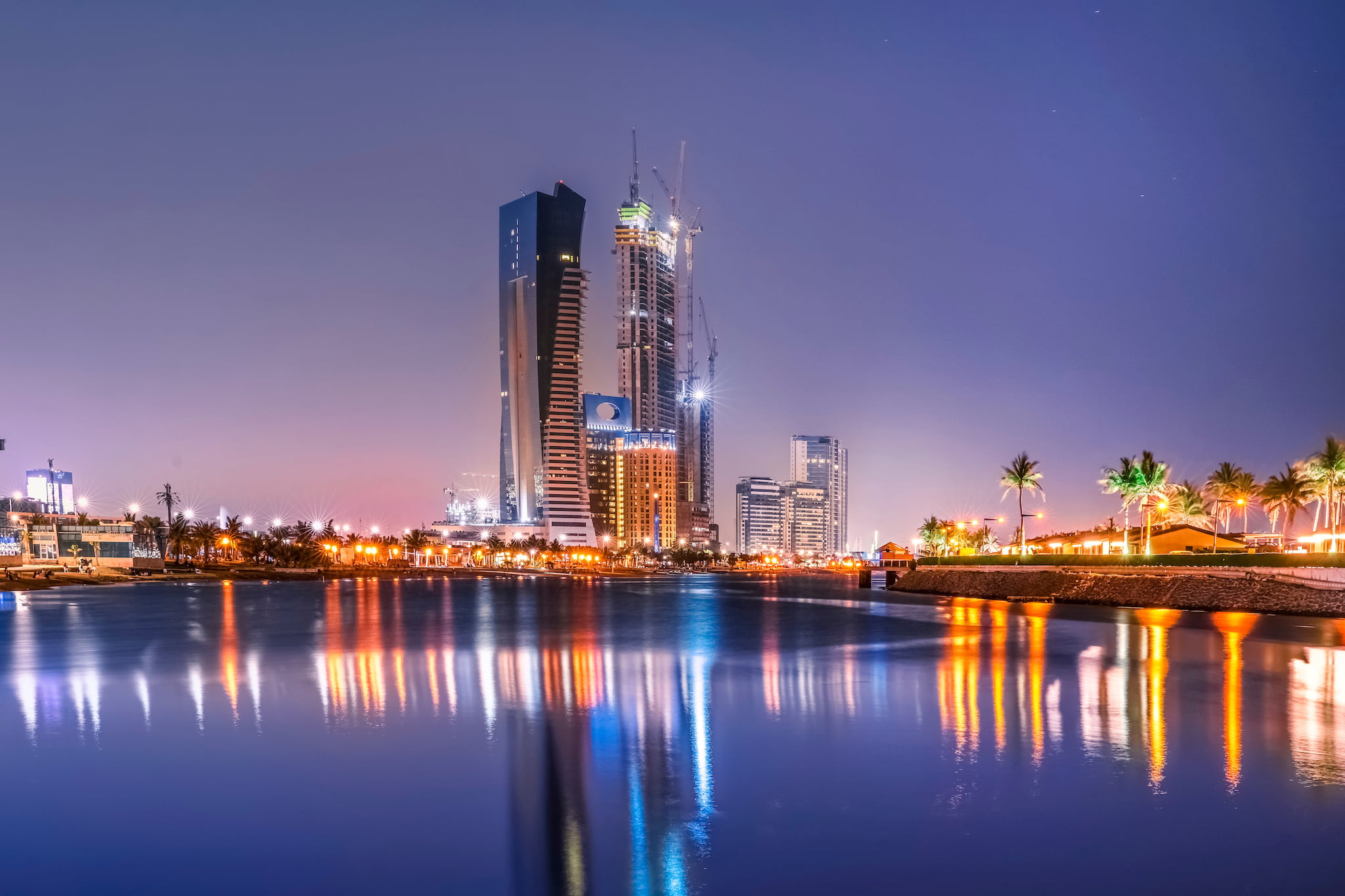Saudi Aramco is one of the largest oil producers in the world. Officially based in Dhahran, in the Kingdom of Saudi Arabia, it has an estimated 270 billion barrels in its reserves. It is also the second largest daily producer of oil in the world. While Saudi Aramco might have been beaten to the first place in terms of daily oil production, it is by far the most profitable company in the world.
Transformation Over the Years
Saudi Aramco was created after an agreement between California-based Socal and Saudi Arabia in 1933. Like many agreements granted to large British and US oil companies during that period, this agreement gave Saudi Aramco the exclusive rights to exploration and extraction of oil on Saudi territory. Over the next decades, the company underwent rapid expansion across Saudi Arabia.
In 1973, a 25% stake in Aramco was purchased by the Saudi Arabian government, which by the late 1970s increased to 100%. The 1980s saw the official establishment of the Saudi Arabian Oil Company (Saudi Aramco). In recent years, large investments have been made by the company in crude-to-chemicals and non-metallic products.
The current president and CEO of Saudi Aramco is Amin H. Nasser. In 2016, Khalid Al-Falih, chairman of Aramco, was appointed as the energy minister of the kingdom
01. A Global Operation
Although Saudi Aramco is officially based in Dhahran, its operations span across the globe and include refining, chemicals, exploration, production, marketing and distribution. All the activities are regulated by the Saudi Arabian Ministry of Petroleum and Mineral Resources, along with the Supreme Council for Petroleum and Minerals.
EXPLORATION
A majority of the workforce of this company is made up of geophysicists and geologists. A large percentage of the exploration the company undertakes occurs at the EXPEC Advanced Research Centre. A supercomputing system with a storage capacity of 1,050 terabytes is used by Saudi Aramco for the purposes of exploring the frontier areas and the Red Sea.

REFINING AND CHEMICALS
The current refining capacity of Saudi Aramco is 5.4 million barrels per day. The downstream operations of the company are now focused on the integration of refineries with the petrochemical facilities. Their first joint venture in this field is with Petro Rabigh.
SHIPPING
Several tankers are employed by Saudi Aramco for the purpose of shipping crude oil, natural gas, and refined oil to various countries. A subsidiary company, Vela International Marine, has been created for the purposes of handling shipping to North America, Europe and Asia.
02. What Happened In The Saudi Aramco 2019 Attack?
On September 14, 2019, at around 4:00 am Saudi Arabia Standard Time (UTC+3), massive fires were reported at the Abqaiq oil processing facility and the Khurais oil field. Later, Saudi Arabia’s interior ministry revealed that the fires were caused by a drone attack, launched on the two Saudi Aramco plants, taking out 5.7 million barrels per day of crude oil. According to Saudi Aramco, the attack occurred in at least two waves. In total, 25 missiles and drones were used in the attack that forced Saudi Arabia to cut its oil production by half.

Image Courtsey: CNN; Attack on Saudi oil field a game-changer in Gulf confrontation; September 15, 2019;
YEMEN’S CIVIL WAR AND IRAN
A few hours after the destruction of the plants, the Houthi movement in Yemen claimed responsibility for the attack. According to US officials, there were 19 points of impact from the cruise missiles and drones. Repeated attacks have been launched by the Houthis using rockets, missiles and drones on densely populated areas. These attacks resulted in the death of 4 people. Despite the Houthi claims, both the US and Saudi Arabia believe that Iran is the real perpetrator of the attack.
There is a long and bitter history of conflict between Saudi Arabia and Iran. The main reason for the present conflict can be traced back to the 1980s, when a pro-Western leader in Iran was toppled and Shia religious authorities took over in the country. Iran started to back Shia militias and parties abroad, while Riyadh backed Sunni loyalties. There have been many boiling points between the two countries ever since, such as the death of Iranian pilgrims in Mecca in July 1987 and the backing of the Saddam Hussain government by Saudi Arabia.
A GLOBAL RIPPLE EFFECT
The drone attacks on Saudi Aramco have impacted the global economy. In just a short time after the attack, the price of crude oil jumped 15%. Almost 5% of the global supply was knocked out by the attacks on the two sites. In fact, the attack resulted in the biggest one-day disruption to oil output.
Leaders of countries across the globe expressed concern over the attacks. Russia’s foreign ministry expressed grave concerns regarding the attack on oil facilities. The trade minister of Japan, Isshu Sugawara, said that he would be watching for a possible impact on oil supply. China’s foreign ministry also expressed concern regarding the unfortunate events that impacted Saudi Aramco.
03. Saudi Arabia Still Went Forward With Its Online Visa Application Process
Just two weeks after the attack on Saudi Arabia’s oil facilities, for which Houthi rebels claimed responsibility, the kingdom announced its plans to launch an online visa. With the aim of making tourism the pillar of its economy, tourist visas were issued to a range of nationalities for the first time.
OPENING UP THE BORDERS
The tourism chief of the kingdom said in a statement, “Opening Saudi Arabia to international tourists is a historic moment for our country.” He went on to add, “Visitors will be surprised by the treasures we have to share — five UNESCO World Heritage Sites, a vibrant local culture and breathtaking natural beauty.” Online tourist visa applications for citizens of 49 countries have been launched by Saudi Arabia. The visa allows tourists to stay for up to 3 months per entry. The visa allows visitors to spend 90 days per year in the country.
04. Vision 2030
The push for tourism comes as part of Crown Prince Mohammed bin Salman’s Vision 2030 reform program to prepare the Saudi economy for the post crude oil era. As part of the Vision 2030 Agenda, the kingdom aims to expand the contribution of tourism to its economy. While the tourism industry currently contributes only 3% to the economy, the goal is to drive it contribute 10% by 2030.
Another part of the 2030 Agenda is to increase the number of annual domestic and international visitors to Saudi Arabia to 100 million. The current Saudi tourism industry primarily depends on religious pilgrims, who visit the kingdom for Hajj. The number of religious tourists is also expected to rise to 30 million by 2030.
PREPARING FOR TOURISTS
The kingdom’s tourism chief stated that Saudi Arabia plans to relax the strict dress code for foreign women. The kingdom plans to allow female tourists to move around without wearing the body-shrouding abaya robe, which is still compulsory for Saudi women, when going out in public.
Saudi Arabia also has planned a multi-billion-dollar project for turning around 50 islands in the Red Sea into luxury resorts. The construction of a $500 billion futuristic city, NEOM, along with Qiddiya, 25 miles outside Riyadh, is also underway. Six Flags is the first international theme park operator involved in the Qiddiya project. The operator is planning to build the fastest and tallest roller coaster in the world here.

05. The Usual Visa Application Process Still Applies For Business Travellers
Despite the drone attacks on the Abqaiq oil processing facility and the Khurais oil field, Saudi Arabia remains focussed on its Vision 2030 plans. One of them is to promote trade. Saudi Arabia is the 26th largest export economy on the planet and the 29th most complex economy, according The Observatory of Economic Complexity. While exporting oil and petroleum products, the country imports items like packaged medicaments, broadcasting equipment and cars.
For people who wish to visit the kingdom to conduct business, the normal visa application process still applies. This means that the process of applying for a Saudi business visa for UK nationals also remains the same. The country remains fully focussed on improving its trade.
APPLICATION PROCESS FOR A BUSINESS VISA
The application process for a business visa for Saudi Arabia is as follows:
- Comprehensive Application Process: After you have collected all the necessary documents, the first step for a Saudi visa is to download the comprehensive application process from the Rapid Visa website.
- Confirmation of Processing Time: Next, you need to choose the processing time, based on the options provided in online order form, to confirm your application.
- Pre-Checking: All documents are pre-checked by us, free of cost, to ensure that there are no nasty surprises or delays for the applicant.
- Document Delivery: After this, you need to send the completed application form to us in London, using Royal Mail Special Delivery, courier services or by delivering it in person.
- Application Processing: After receiving your documentation, we immediately start the processing of your application.
- Tracking Information: After the documentation is set out, you will also be provided the necessary tracking information to monitoring the progress of your application.
- Notification of Issuance: After the visa has been issued, you will be contacted and notified straight away by one of our representatives.
WHICH COUNTRIES STILL HAVE RESTRICTIONS?
- Saudi Arabia once used to have one of the most restrictive visa policies in the world. But, with the aim of making Saudi Arabia a hotspot for tourism and trade by 2030, the policies have been relaxed. eVisa on arrival is now issued to citizens of 52 countries. That being said, there are still certain restrictions for citizens of certain countries.
VISA REQUIRED
- Citizens of Iran and Yemen can travel to Saudi Arabia as tourists, but they require a visa. The stay must not be longer than 30 days. It is also important that the applicant is present while applying for the visa. There are a total 5 forms that need to be filled for the Saudi Arabia visa
RESTRICTED ENTRY
- Citizens of Israel are not permitted entry into Saudi Arabia. However, being Jewish or having an Israeli stamp on your passport no longer preclude you from getting a Saudi visa. These factors are no longer disqualifying, since the relaxation of the visa norms in October 2019.
- After the breakdown of diplomatic ties with Qatar, citizens of this country are no longer permitted entry into Saudi Arabia. Before the severance of ties, Qatari citizens didn’t even need a visa to enter the kingdom. Now, citizens of Qatar can only enter Saudi Arabia for the purposes of Hajj.
06. Safety Travel Advice For Visitors
Although Saudi Arabia is quite a safe country, there are some precautions that foreign travellers should keep in mind. Here are some tips that can help you make your travel safe.
POLITICAL CONSIDERATIONS
It is illegal to hold demonstrations in Saudi Arabia. It is a good idea to follow the local media and stay informed about regional and local developments that could result in public disturbances. Despite warnings by the authorities, protests do take place in the country, from time to time, mostly in the Shia-dominated Qatif area of the Eastern Province, including Al Musawara village in Al-Awamiya, and Al Hasa. Many violent clashes have occurred during such protests.
Due to security concerns in this area, it is advisable to only travel during the daytime in this region. In case of any security operations, it is best to follow the instructions issued by the security forces and leave the area immediately.
LOCAL TRAVEL
A 20 km zone, the border in the Hafr Al-Batin and Khafji areas in the Eastern Province, and the entire northern border of the country have been declared out of bounds by the Saudi authorities. Violators can be punished with a fine of SAR25,000 and imprisonment of 30 months. Land border crossings stay open and the Saudi authorities has announced that signs are being placed across various areas to inform people about the specific places where vehicles are allowed to cross the border.
THE SAUDI-YEMEN BORDER
All travel within 10 km of Saudi Arabia’s border from Yemen is discouraged by the Foreign and Commonwealth Office. One should only travel, if absolutely necessary, between 20 to 80 km of this border. On request for support from President Hadi, Saudi forces, along with their allies, have been conducting air strikes in Yemen since 2015. Missiles, drone attacks and water borne IEDs continue to be launched into Saudi Arabian territory from Yemen. In case of any incident, it is advisable to remain indoors, follow the local news, and check for any instructions issued by the authorities.
THE SAUDI-IRAQ BORDER
Great care must be taken while visiting areas close to the Saudi-Iraq border too. In 2015, clashes close to the Arar crossing point resulted in the death of 3 Saudi Arabian border guards.
ADDITIONAL SAFETY TIPS
There are many items that are restricted in Saudi Arabia, such as alcohol and drugs. Alcohol is illegal and forbidden across the country. However, within residential complexes for expats and foreign citizens, things are a bit more lenient. Those caught distilling or smuggling alcohol in large quantities are bound to be prosecuted under Saudi law. One should also be cautious of Arak, a local brew. Apart from being illegal, it is extremely strong and can contain impurities, such as methanol.
Photography is also a sensitive topic in Saudi Araba. If you feel there is something you should not be taking pictures of, then stop. It is also best to avoid taking photos of government buildings, such as ministry buildings, airports and military facilities.
You should also carry personal identification with you at all times. It is a common practice for the police and other security personnel to check for identification at various checkpoints.
07. Conclusion
The devastating attacks on the Saudi Arabian oil refineries forced the country to close half of its total oil production. However, the kingdom did not let these attacks to divert it from its vision for the future. Saudi Arabia stayed strong and rolled out a revised and more lenient tourist visa policy. The aim was to encourage tourists from across the globe to visit the kingdom and experience the diverse and wonderful culture, landscapes and historic sites this country has to offer.
The policy for business visa has also not changed. Saudi Arabia is focused on promoting business and trade. If you have any queries or want advice regarding the Saudi visa or eVisa, do not hesitate to visit our site or contact us directly.










